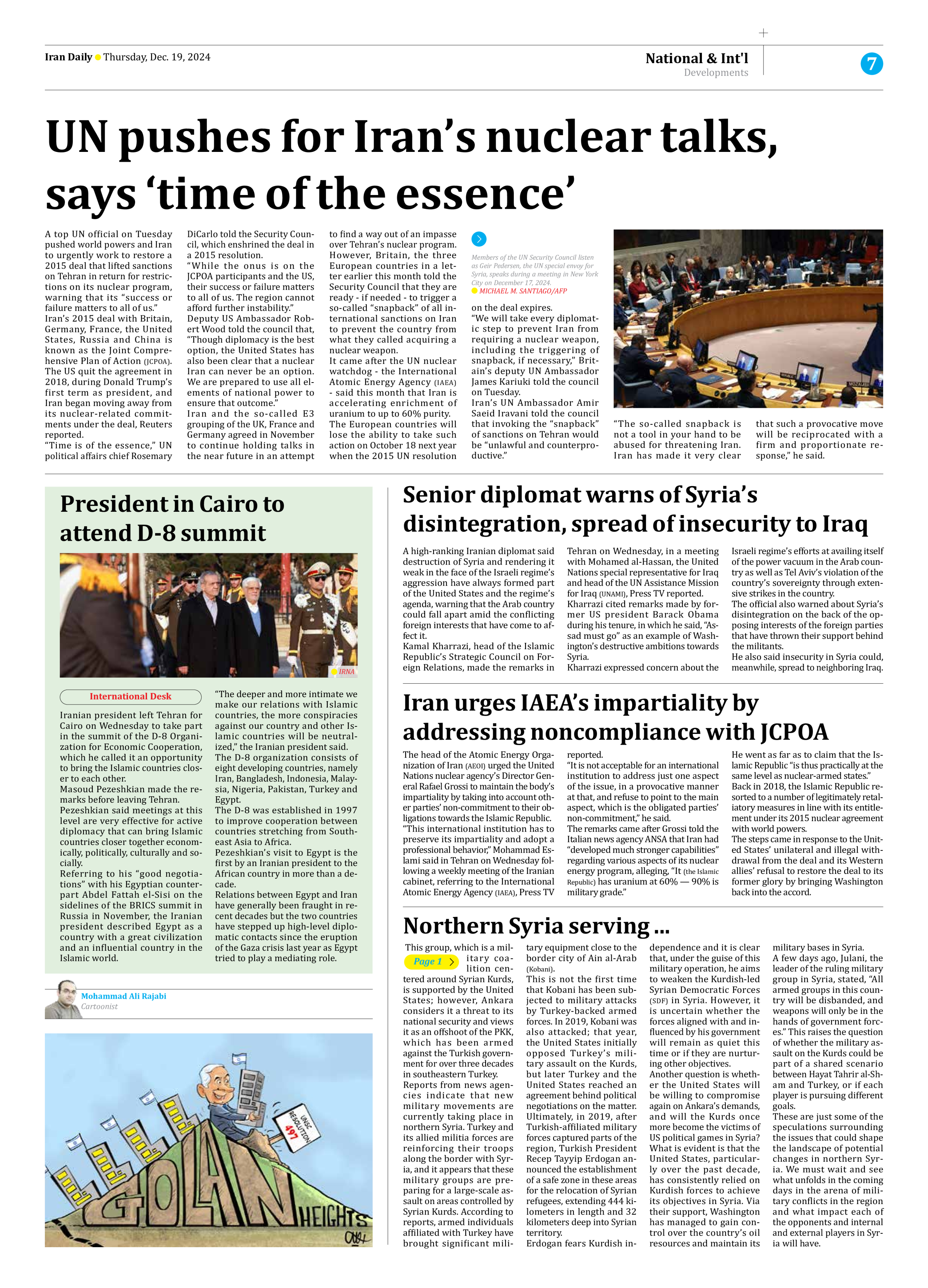
Copy in clipboard...
UN pushes for Iran’s nuclear talks, says ‘time of the essence’
Iran’s 2015 deal with Britain, Germany, France, the United States, Russia and China is known as the Joint Comprehensive Plan of Action (JCPOA). The US quit the agreement in 2018, during Donald Trump’s first term as president, and Iran began moving away from its nuclear-related commitments under the deal, Reuters reported.
“Time is of the essence,” UN political affairs chief Rosemary DiCarlo told the Security Council, which enshrined the deal in a 2015 resolution.
“While the onus is on the JCPOA participants and the US, their success or failure matters to all of us. The region cannot afford further instability.”
Deputy US Ambassador Robert Wood told the council that, “Though diplomacy is the best option, the United States has also been clear that a nuclear Iran can never be an option. We are prepared to use all elements of national power to ensure that outcome.”
Iran and the so-called E3 grouping of the UK, France and Germany agreed in November to continue holding talks in the near future in an attempt to find a way out of an impasse over Tehran’s nuclear program.
However, Britain, the three European countries in a letter earlier this month told the Security Council that they are ready - if needed - to trigger a so-called “snapback” of all international sanctions on Iran to prevent the country from what they called acquiring a nuclear weapon.
It came after the UN nuclear watchdog - the International Atomic Energy Agency (IAEA) - said this month that Iran is accelerating enrichment of uranium to up to 60% purity.
The European countries will lose the ability to take such action on October 18 next year when the 2015 UN resolution on the deal expires.
“We will take every diplomatic step to prevent Iran from requiring a nuclear weapon, including the triggering of snapback, if necessary,” Britain’s deputy UN Ambassador James Kariuki told the council on Tuesday.
Iran’s UN Ambassador Amir Saeid Iravani told the council that invoking the “snapback” of sanctions on Tehran would be “unlawful and counterproductive.”
“The so-called snapback is not a tool in your hand to be abused for threatening Iran. Iran has made it very clear that such a provocative move will be reciprocated with a firm and proportionate response,” he said.







